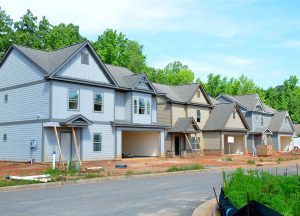
Recessions, student debt, and the prerogatives of other people with prior accumulated wealth are a few of the things getting in the way of millennials and their families owning a home. While millennials are the up and coming age group in need of supplying their families with a roof over their head, their options are slim.
So, who are millennials? According Pew Research, “millennials” are born during the years of 1981-1997–though the definition keeps expanding, as Frank Furstenberg noted in his recent brief for the CCF Gender & Millennials symposium. This cohort is at the stage in life when they are seeking housing or even aiming to own a home–but that path is challenging. Using old-fashioned definitions, millennials are doing “everything” right. Recent employment data shows that the percentage of 25-to-34 year olds in the labor force is the largest it has been in eight years. Millennials are earning more than the generation that came before it. Though millennials are delaying marriage (or declining to get married), this is the age window for marriage—median age of marriage in 2016 was around 28 to 30 years old. The age of first child—usually born to couples, not always married–is around 26.
So, in familiar and unfamiliar ways, family building begins. While they are finding and being hired into better-paying jobs and building their new families, this is when the home search begins. One problem: though they are ready to buy, few houses are on the market. And another: The homes for sale are priced too high for first-time buyers so millennials are renting for longer periods of time. Since the prices are so high, older people have the advantage over millennials, snatching up what’s available. This leaves millennials with a hazy vision for their future. Homeownership is one of the first and primary ways of creating wealth despite economic changes. If millennials can’t buy their first home, how can they build their own wealth? No property means they stay in a lower economic status with no way of moving up the ladder.
This affects a lot of people. The census assumes that household formation—all those people who are going ahead and having a child, moving in, or getting married–will average to about 1.5 million per year through 2020 which is up from the annual average of 900,000 it has been for the last five years. There are more and more new families, but fewer affordable homes for them. These staggering numbers give you a sense of how the generation’s needs fuel competition and push prices up, too.
What do millennials have to fall back on when trying to gain wealth if even getting their first house isn’t an easy task? Jobs aren’t enough—and working millennials face a housing market with rising prices, fewer options, and feverish competition. Homeownership—historically the American path to wealth and security—is more and more out of reach. What needs to be done? More entry-level homes and communities. If we have more of these homes this creates easier access for millennials who in the future will be experienced homeowners. Won’t this be better for the economy now and in the future? Improving housing and homeownership will certainly be better for millennials.
Tasia Clemons is a junior sociology major at Framingham State University, a resident assistant, and a CCF Public Affairs Intern.

Comments